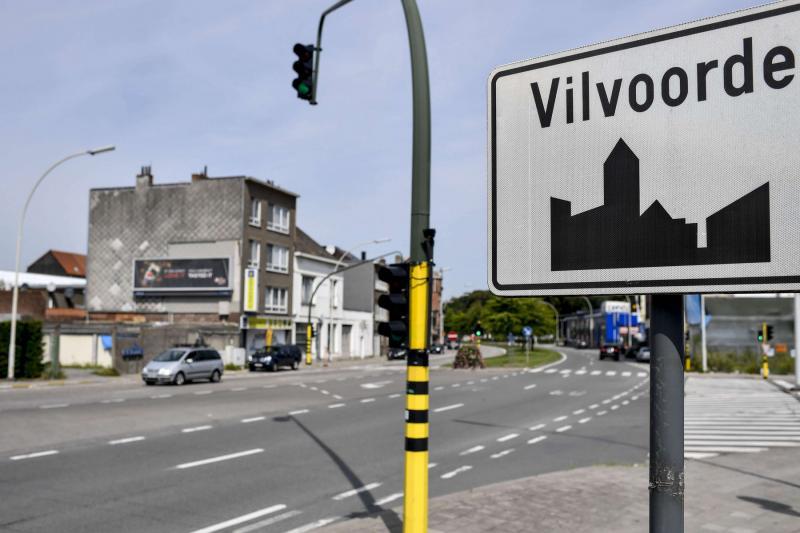This European country’s deradicalisation plan actually works
Despite its citizens’ links to terrorist attacks in recent years, Belgium has created one of the most successful deradicalisation programmes ever attempted.
From 2012-14, no other country in Europe witnessed as many of its citizens joining the Islamic State (ISIS) in Syria and Iraq per capita as Belgium. Labelled by some as a “city of jihads,” Vilvoorde, an industrial town of 44,000 people on the northern outskirts of Brussels, struggled with the spectre of extremism assailing its youth.
Vilvoorde is home to a large immigrant community — almost half the population — many of whom are unemployed. The families of approximately three-quarters of school-going children in the town originate from outside Belgium.
Earlier this decade, a large number of children, many from working-class backgrounds, fell out of the education system at 14 or 15 years old. Social workers in Vilvoorde reported how the teenage sons of immigrants found themselves under extreme pressure to get the latest phones and designer clothes. Many were drawn to petty crime. Disaffection was endemic among the town’s youth.
Undoubtedly, the relentless targeting of Vilvoorde’s Muslims by right-wing populist political parties, such as Vlaams Belang (Flemish Interest), added to the isolation felt by the town’s Muslim population.
Vilvoorde is thought to have supplied at least 28 extremists to ISIS at the height of its brutal reign over eastern Syria and north-western Iraq. Clearly, something was wrong in this sleepy Flemish satellite town.
Led by Vilvoorde Mayor Hans Bonte and supported by an academic specialist and a prominent member of the local immigrant community, the deradicalisation programme set specific targets.
It worked to reclaim religious vocabulary that had been reinterpreted in a macabre way by ISIS and other extremist groups. Islamic cultural practices co-opted by ISIS recruiters to justify their violent ways and used to radicalise the town’s at-risk Muslim youth had to be reimagined with the help of Muslim scholars.
Also crucial was Bonte’s professional background of working as a youth counsellor in Brussels’ infamous Molenbeek district, where terrorists responsible for attacks in Paris and Brussels in 2015 and 2016 originated.
Bonte’s sensitivity and experience working with marginalised young people, coupled with the political clout of his mayoral office, were essential to tackling Vilvoorde’s extremism problems in a nuanced, inclusive but effective way.
“The most important thing to prevent radicalism in youth groups is opening your doors and windows and your hearts, to the offer that is there from the Muslim community itself, to help secure society, because they are the real victims,” he said at the European Parliament in March 2017.
Since introducing the deradicalisation programme in 2014, Vilvoorde has not reported a single additional case of its residents leaving for Iraq or Syria. The programme was so successful that authorities in US cities facing similar extremist concerns adopted tactics based on Vilvoorde’s model.
The main reason for its success was community outreach. When someone spots an individual who appears to be on the path to radicalisation, family, friends and community leaders collectively step in to steer them away.
All of which begs a rather obvious question: Why haven’t other European towns and cities followed Vilvoorde’s lead?
It’s not so straightforward.
In countries with visible right-wing political groups, deraStephen Starr is an Irish journalist who lived in Syria from 2007 to 2012. He is the author of Revolt in Syria: Eye-Witness to the Uprising (Oxford University Press: 2012).dicalisation plans are often discredited before funding can be raised or are abandoned before they have been seen through to their conclusion. Oftentimes, those behind deradicalisation projects are forced to spend time defending their work in the media rather than community outreach efforts.
When the number of terrorist incidents ballooned in Europe in 2015-16, it became harder for deradicalisation advocates to secure funding or public support. Most Europeans want strict punishment for the extremists responsible for terror attacks in France, Germany and elsewhere. That makes it harder for programmes such as the type in Vilvoorde to command wide support.
As is the case everywhere, of course, extremism — in its nationalist, separatist or jihadist manifestations — is a symptom of other ills, be they poverty, social exclusion, identity issues or domestic difficulties. The sooner states and societies of Europe realise this fact the sooner we can all consign the threat of homegrown terrorism to history.
Stephen Starr is an Irish journalist who lived in Syria from 2007 to 2012. He is the author of Revolt in Syria: Eye-Witness to the Uprising (Oxford University Press: 2012).
This article was originally published in The Arab Weekly.







